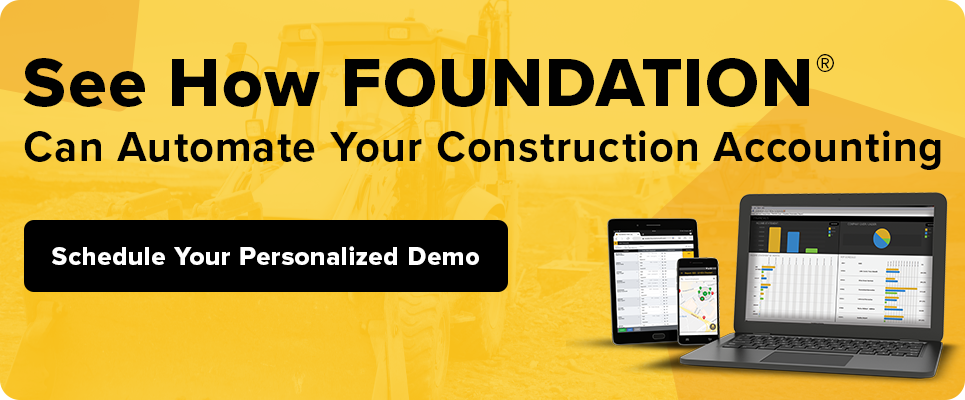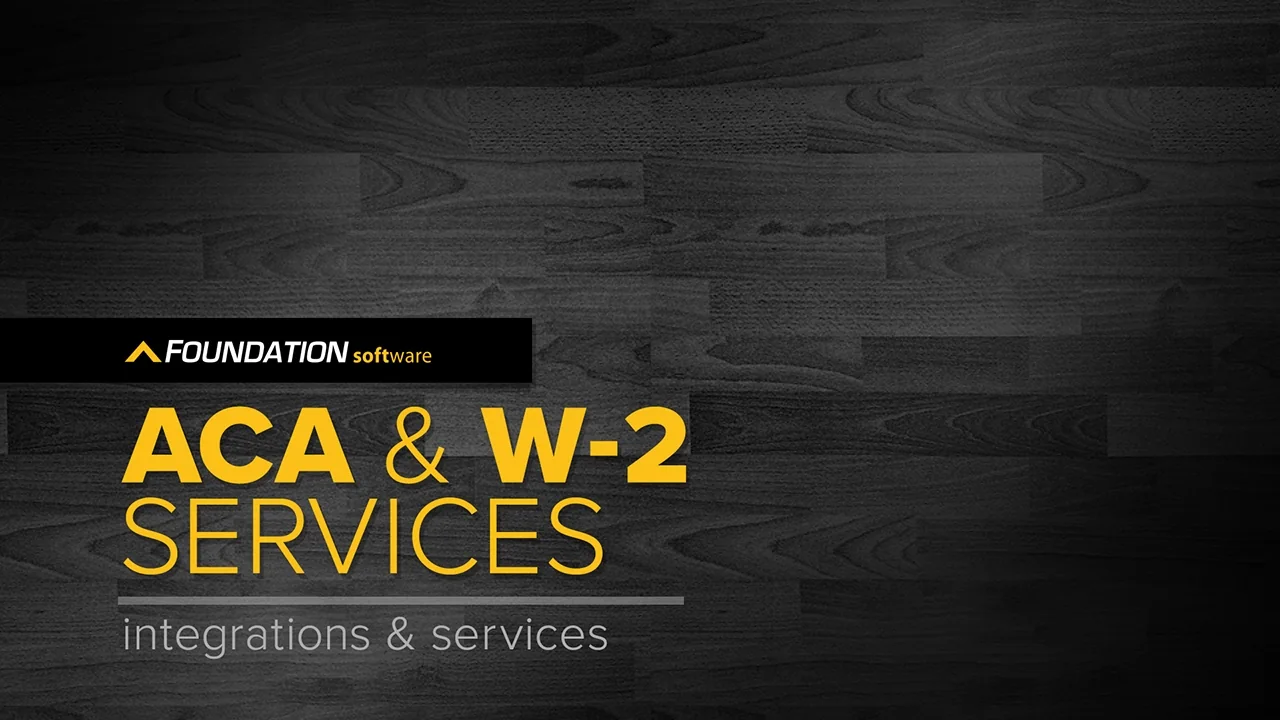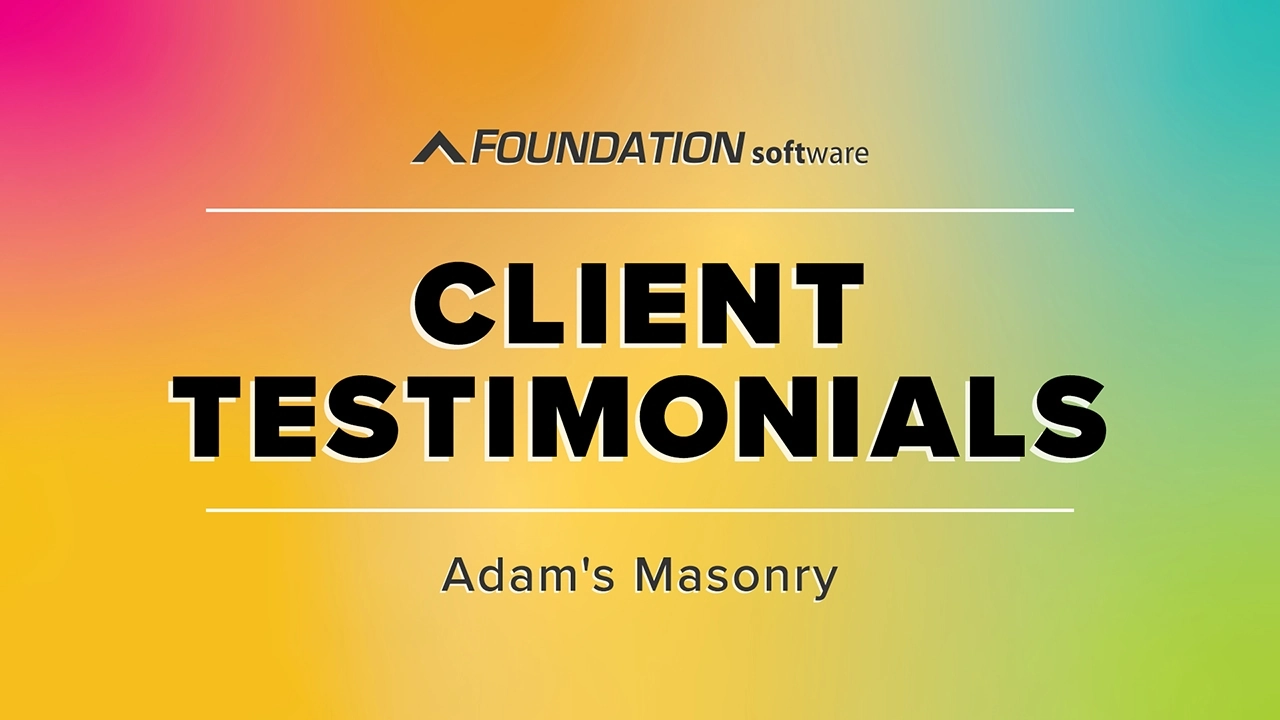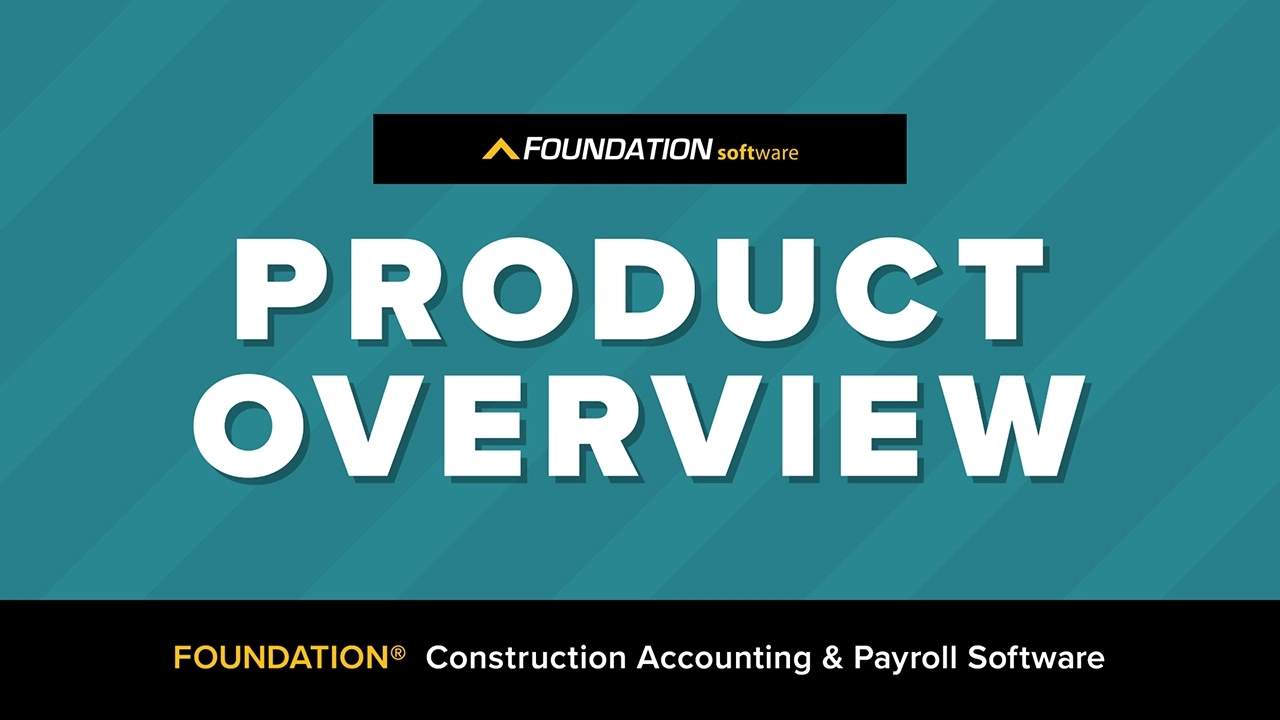
There are many resources involved in the construction industry, but none are more valuable than time.
That means efficiency is paramount, regardless of the project. One way to maximize efficiency is to invest in a construction management software provider that offers a range of integrated products like construction accounting, construction payroll, construction safety, human resources (HR), time tracking and estimating.

These integrated products help contractors:
- Reduce errors
- Streamline workflow
- Deliver real-time data to make more informed decisions
- Connect field and office staff to provide a holistic view of a contractor’s entire operations
By investing in integrated products from one provider, contractors can future proof their operations as they grow and take on new challenges.
Below, we’ll explore why investing in products with a seamless integration from one software provider is particularly beneficial for the construction industry.
Key Takeaways About Construction Management Software
- By investing in one construction software provider that offers multiple integrated products, contractors can save time and improve project performance.
- Integrated products seamlessly share data between systems giving contractors access to real-time data to make more informed decisions and have more financial control over projects.
- Contractors can expect a better customer support experience when investing in a construction management solution from one provider because it’s easier for them to troubleshoot problems and they understand exactly how the integration works from a variety of angles.
- Foundation Software offers a family of integrated products aimed at helping contractors improve their workflow.
6 Benefits Of Construction Management Software From One Provider
1. Streamlined Communication and Data Flow
The primary advantage of using one provider for multiple integrated software solutions is that everything is connected within one ecosystem.
With integrated systems, data flows seamlessly between different departments — whether it’s from HR to payroll, or from project management to construction accounting — without the need for manual data entry, which wastes valuable time and increases the risk of errors.
In a typical non-integrated setup, construction companies rely on separate software systems for:
- Employee time tracking
- Calculating payroll
- Estimating and takeoff
- Managing employee benefits
- Tracking construction safety and certifications
- Overseeing the success of construction projects
The lack of connection between these systems can create silos of information, leading to inefficiencies.
For instance, if HR and payroll systems don’t communicate, errors like incorrect overtime calculations, missed deductions, or late payments can occur, costing both time and money.
Construction payroll mistakes can lead to disputes with employees and unions and result in fines and project delays.
When each software is provided by the same vendor and integrated into one system, the flow of information is automated and accurate.
Data can be entered once and then shared between solutions, making information immediately available to all relevant teams, minimizing human errors and improving communication.
2. Reduced Complexity and Easier User Training
Construction companies often have diverse teams that need to interact with various software systems, but training staff on multiple platforms can be time-consuming and confusing.
When contractors rely on multiple different vendors for their software, each system may have its own user interface and terminology. This creates a steep learning curve for employees, especially when they need to switch between programs they use less frequently.
One provider that offers multiple integrated software solutions offers a unified system with an interface that’s consistent across each software, which allows for employees to learn the software faster and employ it more efficiently.
Additionally, because all the systems are built to work together, employees don’t have to worry about figuring out how to get them to “talk” to each other. The software vendor handles the integration, ensuring that everything works together smoothly from day one.
3. Cost Efficiency

Successful construction companies budget every aspect of their business. Using different software providers often leads to higher costs due to:
- Subscription fees for each platform
- The need for additional IT support to maintain disparate systems
- The inefficiencies caused by using incompatible systems
When companies use a single provider for multiple integrated software solutions, they benefit from bundling options, as providers tend to offer better rates for companies that purchase multiple services.
Beyond the initial cost savings, having one provider can help cut down on indirect costs as well because it reduces the need for staff to troubleshoot and maintain different software solutions, helping them focus on other areas of the business.
4. Better Customer Support and Service
When using different vendors for various software functions, construction companies might have to contact multiple customer service teams, each responsible for a separate, disjointed system.
This can result in delays, miscommunication and frustration, especially if issues arise at the same time across different systems.
With a unified provider, companies receive a more coordinated, efficient support experience. The vendor is already familiar with each software, how all the pieces fit together and how the contractor uses them, allowing them to address problems quickly and effectively.
5. Enhanced Reporting and Analytics
Effective reporting and analytics are key to staying on top of project costs, workforce productivity and financial health in the construction industry.
However, when data is spread across different construction software systems, it becomes challenging to get a comprehensive, real-time view of the business.
Integrated software systems provided by the same vendor allow for better reporting and data analytics because all the information is stored within the same platform.
Whether it’s construction payroll reports, project budgets, employee performance, or compliance documentation, having everything in one system makes it easier to pull performance metrics, submit reports and generate insights that can guide better decision-making.
For example, contractors can use the connection between construction accounting software and construction payroll service to generate job costing reports in real-time to see the impact of labor costs on their budget.
Additionally, integrated systems often come with built-in dashboards that allow construction stakeholders to see key performance indicators (KPIs) at a glance. This reduces the time spent on manual reporting and enables business leaders to address project changes quickly by making data driven decisions.
6. Scalability
As a construction company grows, its needs to evolve its toolbox. Whether it’s managing more employees, larger construction projects, or more complex workflows, having software that scales with the needs of contractor’s business is essential.
Using one provider for an integrated platform makes scaling operations easier. The same vendor that provided your initial systems can offer expanded services as your business expands, ensuring the software can handle your new needs without the disruption of switching to a new provider or integrating new systems.
Automate Your Construction Business With Foundation Software’s Portfolio
Having a single provider for modern construction management software is a game-changer for construction companies looking to streamline operations, reduce complexity, and improve data management.
From improving communication and data security to offering cost savings and more efficient support, the benefits are clear.
Foundation Software has 40+ years of experience offering best in class construction software. It’s current family of integrated products includes:
- FOUNDATION® – construction accounting software
- Payroll4Construction – construction payroll service
- The EDGE®/McCormick – construction estimating and takeoff software
- hrHQ – HR software
- SafetyHQ® – construction safety software
- ProjectHQ® – construction project management software
- WorkMax – construction time tracking software
For more information about Foundation’s advanced construction management software, chat with an expert today!
Share Article
Keep on current news in the construction industry. Subscribe to free eNews!
Our Top 3 YouTube Videos
Learn about our software more in depth with product overviews, demos, and much more!

Our ACA reporting & e-filing services include official 1094-C and 1095-C IRS reporting, optional e-filing (no applying for a TCC code required), mailing to your employees and experienced support to help you.

There are plenty of reasons to make FOUNDATION your choice for job cost accounting and construction management software — just ask our clients!

From job cost accounting software, to construction-specific payroll. Get an overview on your next all-in-one back-office solution.



